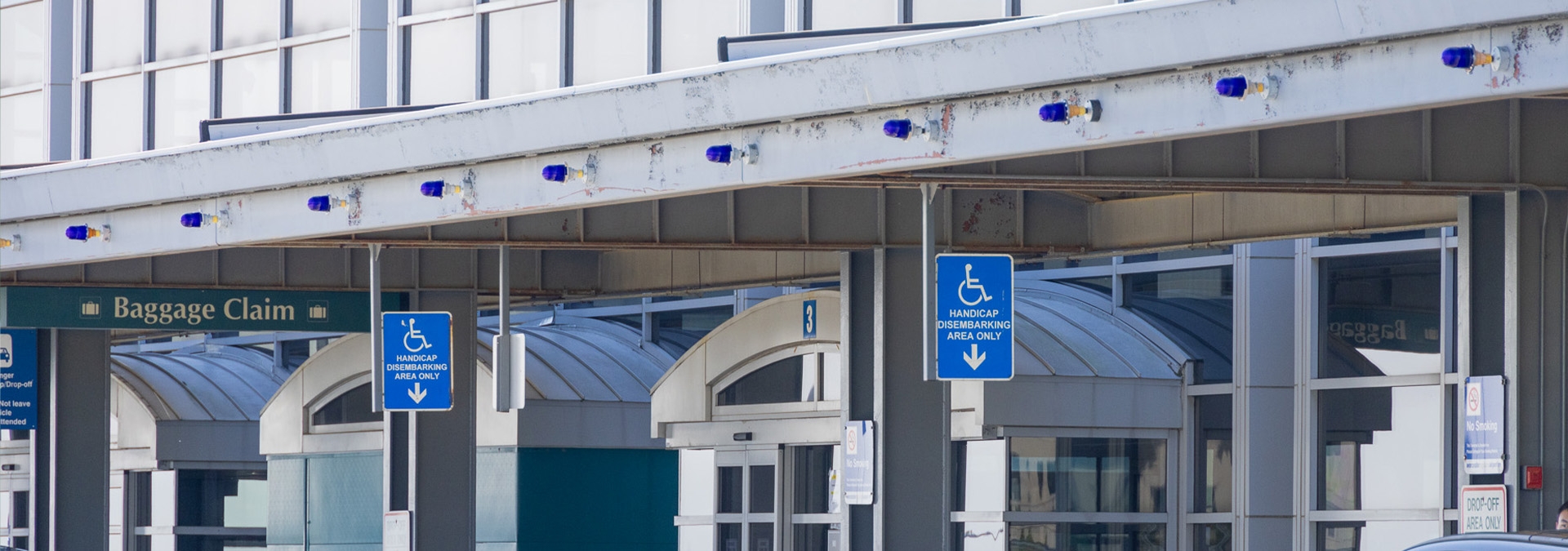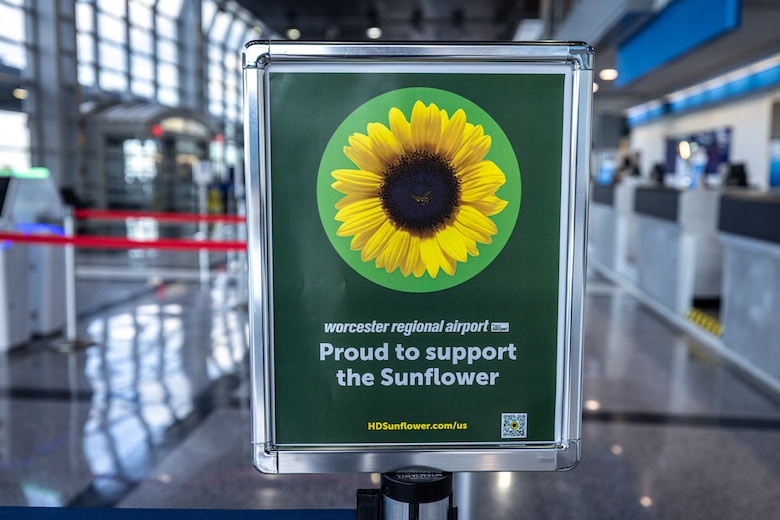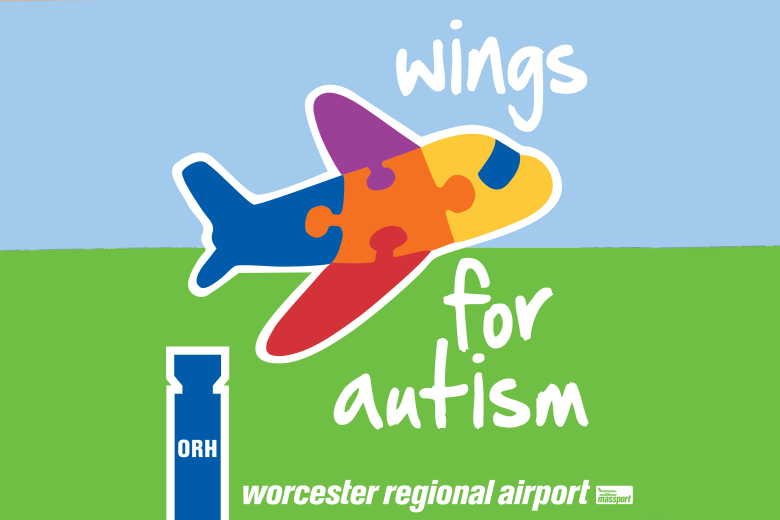
At the Airport
ADA Compliance and Accessibility
Worcester Regional Airport provides an accessible airport experience for travelers of all abilities.
Curbside Pickup and Drop-Off
Travelers with mobility issues can be picked up and dropped off at the terminal curb.
Parking
Accessible parking is available at the Main Parking Lot with a valid disability placard or license plate. The distance from the parking lot to the terminal is approximately 500 feet.
Wheelchairs
Travelers can request wheelchair assistance with their airline.
Elevators
Elevators are available inside the terminal, equipped with emergency call buttons and braille signage.
Restrooms
All restrooms in the terminal are wheelchair accessible.
Service Animals
All service animals on leash or harness are allowed inside the terminal. A relief area for service animals is available outside the terminal, next to the Main Parking Lot. Please check with your airline regarding their policy on traveling with service animals.
Security Checkpoint
TSA provides special assistance for persons with disabilities or medical conditions through a program called TSA Cares. Through TSA Cares, a traveler may request a TSA Passenger Support Specialist to escort them through the security screening process. Travelers are strongly encouraged to contact TSA Cares at least three days before a scheduled flight. You can request assistance online or by calling 855-787-2227.
Hidden Disabilities Sunflower Program
Worcester Regional Airport is a proud member of the Hidden Disabilities Sunflower program. This global initiative helps travelers with hidden disabilities, like autism, dementia, anxiety or chronic pain, by offering a Sunflower lanyard as a discreet sign to indicate a non-visible disability and that may require help, assistance or simply a little more time.
For information on how to get a Sunflower lanyard, visit our airline ticketing counters inside the terminal.

Wings for Autism®
Worcester Regional Airport, in partnership with the Charles River Center and TSA, offers Wings for Autism®, a free program designed to help families with autistic children experience the airport and prepare for air travel. Visit CharlesRiverCenter.org to learn more about the next Wings for Autism® event.

ADA Grievance Procedure
The Americans with Disabilities Act (ADA) protects individuals from discrimination on the basis of disability in the services, activities, programs, benefits, and/or facilities of Massport. The Grievance Procedure was established to meet the requirements of the ADA, and to provide a process to ensure better service to all customers using Worcester Regional Airport and other Massport facilities. It may be used by anyone who wishes to file a complaint alleging discrimination on the basis of disability in the provision of services, activities, programs, benefits, or facilities of Massport, its tenants, or service providers. Massport’s HR Policies and Procedures Manual governs employment-related complaints of disability discrimination.